Top 10 turnkey packaging solutions in China introduce,list main products and website if have
China is renowned for its robust packaging industry, offering numerous turnkey solutions. Here’s a concise overview of the top 10 turnkey packaging solution providers:
1. Hangzhou Youngsun Intelligent Equipment Co., Ltd.
– Main Products: Carton sealers, shrink packagers, strapping machines.
– Website: [Youngsunpack](http://www.youngsunpack.com/)
2. Guangzhou Zhongkai Packaging Machinery Co., Ltd.
– Main Products: Vacuum packing machines, filling machines, and labeling machines.
– Website: [Zhongkai Packaging](http://www.zhongkaipacking.com/)
3. Wenzhou Zhongwang Packaging Machinery Co., Ltd.
– Main Products: Blister packaging machines, flow wrapping machines, and pillow packing machines.
– Website: [Zhongwang](http://www.zwpack.com/)
4. Jiangsu Tom Packaging Machinery Co., Ltd.
– Main Products: Automatic labeling machines, filling and capping machines, carton formers.
– Website: [Tom Packaging](http://www.tompacking.com/)
5. Y-FANG Sealing Machine Ltd.
– Main Products: Vacuum sealers, meal box sealers, and continuous bag sealers.
– Website: [Y-Fang Sealing](https://www.y-fang.com)
6. Shanghai Boevan Packing Co., Ltd.
– Main Products: Vertical form fill seal machines, sachet packaging machines.
– Website: [Boevan Packing](http://www.boevanpack.com/)
7. Shanghai Acepack Intelligent Technology Co., Ltd.
– Main Products: Stand-up pouch machines, premade pouch machines.
– Website: [Acepack](http://www.acepackgroup.com/)
8. Ruian Queensense Machine Co., Ltd.
– Main Products: Shrink wrap machines, film wrapping machines, and bottle labeling machines.
– Website: [Queensense](http://www.queensense.cn/)
9. Zhejiang Jianheng Machinery Co., Ltd.
– Main Products: Automatic packaging lines, granule packaging machines, liquid packaging machines.
– Website: [Jianheng Machinery](http://www.jianhengpack.com/)
10. Guangdong Gosunm Intelligent Industry Co., Ltd.
– Main Products: Mask packaging machines, automatic packing lines, and multi-function packing machines.
– Website: [Gosunm](http://www.gosunm.com/)
These companies offer a comprehensive range of packaging solutions, catering to various industries and ensuring high efficiency and reliability.
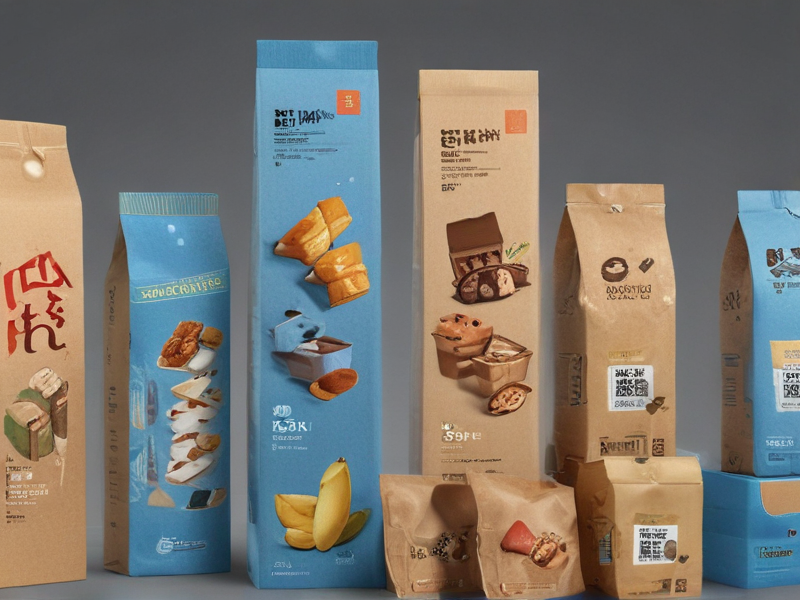
Types of turnkey packaging solutions
Turnkey packaging solutions are comprehensive services where a provider manages the entire packaging process from concept to completion. These solutions generally include design, production, assembly, and distribution, ensuring consistency and efficiency. The main types of turnkey packaging solutions include:
1. Custom Packaging Solutions: Tailored to specific product needs, these solutions involve creating custom packaging designs that reflect the brand identity while ensuring product protection and compliance.
2. Contract Packaging: Also known as co-packing, this service involves outsourcing the packaging operations to a third-party provider. It includes everything from sourcing materials to packaging products and often involves specialized equipment and expertise.
3. Blister Packaging: Often used for pharmaceuticals, electronics, and consumer goods, this type involves a pre-formed plastic cavity that secures the product. It offers visibility and protection.
4. Shrink Wrapping: Involves enclosing products in a plastic film that shrinks when heat is applied, providing a tight and tamper-evident seal. It’s commonly used for bundling multiple items together.
5. Folding Cartons: These are custom-designed boxes made from paperboard, ideal for retail packaging. They offer versatility in terms of design and can be easily branded.
6. Labeling Solutions: Turnkey providers can handle printing and application of labels as per regulatory requirements and branding guidelines, often integrating with existing packaging lines.
7. Flexible Packaging: Solutions like bags, pouches, and sachets fall under this category. They are lightweight, customizable, and often used for food, beverages, and pharmaceuticals.
8. Kitting and Assembly: This involves assembling multiple items into a single package, often seen in subscription boxes, promotional kits, and gift sets.
In summary, turnkey packaging solutions streamline the entire packaging process, offering businesses efficiency, cost-effectiveness, and quality assurance.
Pros and Cons of Using turnkey packaging solutions
Pros of Using Turnkey Packaging Solutions:
1. Simplified Process: A single point of contact manages the entire packaging process, reducing complexity and saving time.
2. Cost-Effective: Bulk buying and streamlined processes often translate to lower costs.
3. Quality Control: Centralized management ensures consistent quality across all packaging elements.
4. Faster Time-to-Market: Efficient coordination speeds up the production cycle.
5. Expertise: Leverages specialized knowledge and advanced technology in packaging, reducing the risk of errors.
6. Convenience: Reduces the administrative burden on your team, allowing you to focus on core business activities.
7. Scalability: Easily scale packaging operations up or down based on demand without significant logistical challenges.
Cons of Using Turnkey Packaging Solutions:
1. Less Control: Outsourcing to a single provider may reduce your influence over certain aspects of the packaging process.
2. Dependency: Relying on one vendor can be risky if they experience delays or failures.
3. Cost Transparency: May sometimes lack detailed breakdowns of individual costs, making it difficult to identify savings opportunities.
4. Customization Limitations: Standardized solutions might not meet all unique or specialized packaging requirements.
5. Communication Barriers: Potential for miscommunication when dealing with complex or large-scale projects.
6. Initial Setup Time: May require an upfront time investment to establish the working relationship and systematize operations.
7. Quality Variance: While turnkey solutions aim for consistency, variations in quality can occur, impacting product presentation and integrity.
In summary, turnkey packaging solutions offer streamlined processes, cost-effectiveness, and scalability but may come with trade-offs in control and customization. Deciding whether to use a turnkey solution should be based on the specific needs and capabilities of your business.
turnkey packaging solutions Reference Specifications (varies for different product)
Turnkey packaging solutions encompass a comprehensive approach that includes the design, development, and production of packaging tailored to specific products. Reference specifications vary significantly depending on the nature of the product but typically cover several critical aspects:
1. Material Selection: Chosen based on product requirements, such as barrier properties, durability, sustainability, and regulatory compliance. Materials can range from plastics, glass, metals, to biodegradable substances.
2. Design Requirements: Includes structural integrity, aesthetic appeal, brand alignment, functionality (e.g., ease of opening), and customer preferences. Structural design must ensure protection during transit and storage.
3. Size and Capacity: Precise dimensions must match the product’s physical attributes, optimizing material usage and storage space. This includes considerations for standard stacking and shelving configurations.
4. Printing and Finishing: Branding essentials like logos, color schemes, and product information. Techniques such as lithography, digital printing, or flexography are used based on print quality and cost-effectiveness.
5. Closure Systems: Type and design of closure mechanisms (screw caps, snap lids, seals) appropriate to maintain product integrity and ensure consumer convenience.
6. Compliance and Testing: Adherence to regulatory standards (e.g., FDA, EU directives) and rigorous testing for stress resistance, sealing efficacy, and material compatibility to ensure safety and quality.
7. Production Capabilities: High scalability for mass production, accuracy in replicating design specifications, and ensuring minimal waste through optimized manufacturing processes.
8. Sustainability: Integration of eco-friendly practices and materials to reduce environmental impact, meeting sustainability goals and consumer expectations for reduced carbon footprint.
These specifications ensure a cohesive process from conceptualization to final delivery, providing businesses with seamless, efficient, and effective packaging solutions tailored to their specific needs.
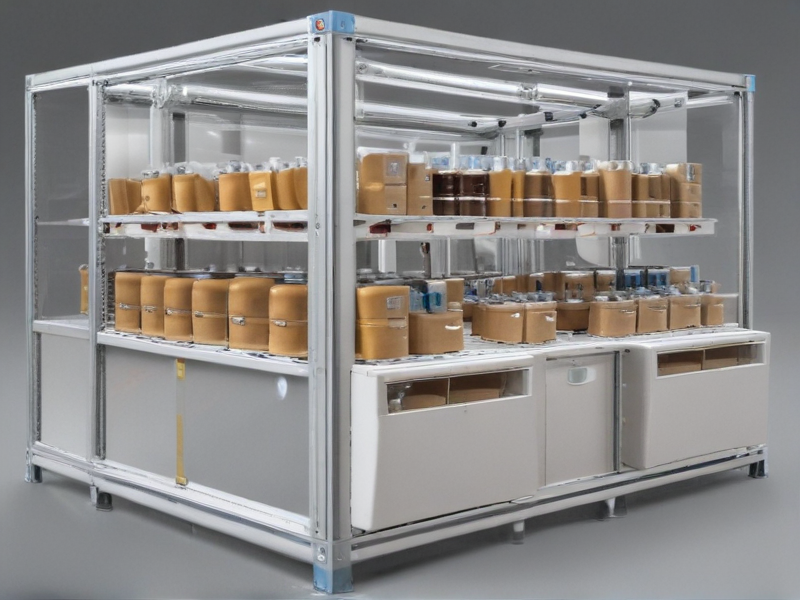
Applications of turnkey packaging solutions
Turnkey packaging solutions are comprehensive services where a single provider handles all aspects of packaging, from design and material sourcing to production and delivery. These solutions find applications across various industries due to their efficiency, cost-effectiveness, and streamlined processes.
1. Food and Beverage Industry: Ensures compliance with safety standards and extends shelf life. Custom designs enhance brand visibility in a competitive market.
2. Pharmaceuticals: Meets stringent regulatory requirements. Provides tamper-evident, child-resistant packaging, ensuring product integrity and consumer safety.
3. Cosmetics and Personal Care: Guarantees aesthetic appeal and functionality. Customization options cater to premium branding and user convenience.
4. Electronics: Protects against static and mechanical damage during transit. Customized inserts and durable materials prevent breakage and enhance consumer experience.
5. E-commerce: Optimizes packaging for shipping, reducing costs and damages. Ensures an attractive unboxing experience, crucial for customer satisfaction and brand loyalty.
6. Automotive: Supplies durable, custom-fit packaging for parts and components. Reduces damage during transportation and storage, ensuring operational efficiency.
7. Retail: Provides innovative, shelf-ready packaging. Enhances product display, increasing sales and brand recognition.
8. Healthcare Devices: Ensures sterile, protective packaging. Complies with regulatory standards, safeguarding both product and user.
Overall, turnkey packaging solutions offer industries a one-stop-shop approach, ensuring high-quality, compliant, and innovative packaging that meets specific market needs while focusing on cost and operational efficiency.
Material of turnkey packaging solutions
Turnkey packaging solutions encompass various materials tailored to meet diverse industry needs, ensuring functionality, sustainability, and aesthetic appeal. Below are some commonly used materials:
1. Cardboard and Corrugated Fiberboard: Widely used for shipping and retail packaging, these materials offer durability and recyclability. Corrugated fiberboard provides extra protection with its fluted middle layer, ideal for safeguarding products during transit.
2. Plastics: Materials like polyethylene (PE), polypropylene (PP), and polyethylene terephthalate (PET) are prevalent due to their versatility, lightweight nature, and durability. They are commonly used for bottles, containers, and flexible packaging solutions. Innovations in biodegradable plastics also contribute to sustainability efforts.
3. Glass: Preferred for its impermeability and aesthetic appeal, glass is utilized in packaging for beverages, cosmetics, and pharmaceuticals. It’s fully recyclable, maintaining quality through multiple cycles of reuse.
4. Metals: Aluminum and steel are used in cans, foils, and other rigid packaging options. They provide excellent barrier properties, protecting contents from light, oxygen, and contaminants. Metal packaging is also recyclable.
5. Paper and Paperboard: Ideal for a variety of packaging needs, these materials are lightweight, cost-effective, and easy to print on, making them suitable for branding and marketing. With increasing focus on sustainability, paper packaging often incorporates recycled content.
6. Biodegradable and Compostable Materials: Made from renewable resources like cornstarch, sugarcane, and cellulose, these materials break down more easily in the environment. They are gaining traction as eco-friendly alternatives to traditional plastics.
7. Foams: Used for cushioning and protection, foams like expanded polystyrene (EPS) and polyurethane are key in preventing damage during shipping. Sustainable options like biodegradable foams and molded pulp are emerging in response to environmental concerns.
Turnkey packaging solutions integrate these materials, often combining them to optimize protection, cost, and environmental impact, ensuring that every packaged product is delivered intact and appealing to end consumers.
Quality Testing Methods for turnkey packaging solutions and how to control the quality
Quality testing methods for turnkey packaging solutions involve a combination of techniques to ensure packaging meets specified standards. Here is an overview of key methods and quality control steps:
### Key Testing Methods:
1. Material Testing:
– Tensile Strength: Measures the material’s resistance to breaking under tension.
– Edge Crush Test (ECT): Evaluates the strength of corrugated board edges.
– Burst Strength Test: Assesses the material’s ability to withstand internal pressure.
2. Dimensional Accuracy:
– Die-cut Sampling: Ensures precision in dimensions/cutouts.
– Gauge and Fixture Testing: Confirms dimensions meet specifications.
3. Environmental Testing:
– Temperature and Humidity Testing: Mimics varying storage conditions.
– Aging Tests: Accelerated aging to predict lifespan.
4. Functional Testing:
– Drop Tests: Simulates possible impacts during handling/shipping.
– Vibration Tests: Evaluates packaging durability during transportation.
– Compression Tests: Tests stacking strength.
5. Aesthetic and Print Quality:
– Color Matching: Uses spectrophotometers to ensure print color accuracy.
– Print Durability: Ensures print stays intact under various conditions (abrasion, moisture).
### Quality Control Steps:
1. Incoming Material Inspection: Verify raw material quality before production.
2. In-Process Checks: Regular inspections during manufacturing to catch issues early.
3. Final Product Inspection: Comprehensive inspection of finished products against predefined criteria.
4. Compliance Testing: Ensure packaging meets regulatory and client-specific standards.
5. Documentation and Traceability: Maintain records of all quality checks and corrective actions.
6. Employee Training: Continuous training for staff on quality standards and procedures.
7. Customer Feedback: Regularly consult customers for feedback to identify areas for improvement.
By integrating these methods and steps, companies can maintain high standards for turnkey packaging solutions, ensure customer satisfaction, and minimize the risk of packaging failures.
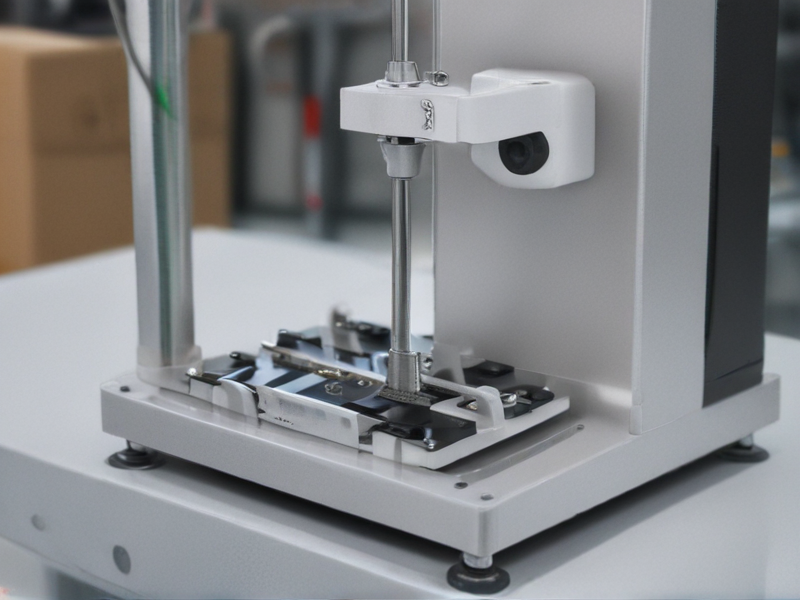
The Work Process and how to use turnkey packaging solutions
Turnkey packaging solutions streamline the packaging process from concept to completion, allowing businesses to focus on core activities while experts handle packaging needs. Here’s a concise guide to their work process and usage:
1. Initial Consultation and Needs Assessment:
– Providers conduct a detailed consultation to understand your product, target market, packaging specifications, and budget.
– Analysis of current packaging challenges and requirements is performed.
2. Design and Development:
– A design team creates customized packaging concepts, incorporating branding, functionality, and sustainability considerations.
– Prototyping and sample production ensure the design meets all specifications and standards.
3. Material Sourcing and Manufacturing:
– Providers source high-quality materials, leveraging their supplier networks for cost-efficiency and reliability.
– Advanced manufacturing processes produce packaging at scale while maintaining quality control.
4. Printing and Branding:
– Custom graphics, logos, and product information are printed using high-resolution techniques.
– Consistency in branding across all units ensures market recognition.
5. Quality Assurance:
– Rigorous testing is conducted to ensure durability, compliance with regulations, and protection during transit.
– Quality checks occur at multiple stages: material selection, production, and final output.
6. Logistics and Fulfillment:
– Streamlined logistics services manage warehousing, inventory, and distribution.
– Just-in-time delivery systems reduce storage costs and ensure timely arrival of packaging materials.
7. Post-Production Support:
– Ongoing support includes updates, redesigns, scalability options, and troubleshooting.
– Analytical tools assess packaging performance and consumer feedback, allowing continuous improvement.
Usage:
– Engage a turnkey provider for end-to-end packaging solutions tailored to your product.
– Outsourcing to experts increases efficiency, ensures quality, and allows you to focus on core business operations.
– Utilize these comprehensive services from design through delivery to optimize time, cost, and resource management.
Turnkey packaging solutions offer a seamless, integrated approach, ensuring your packaging aligns with your brand and operational needs.
turnkey packaging solutions Importing questions including Cost,Supplier,Sample,Certification and Market
When importing turnkey packaging solutions, it’s essential to consider several key aspects including cost, suppliers, samples, certification, and market. Here’s a concise guide:
1. Cost:
– Initial Costs: Evaluate the purchase cost, shipping, customs duties, and taxes.
– Long-term Costs: Consider maintenance, repairs, and potential downtime.
– Hidden Costs: Account for insurance, storage, and currency fluctuations.
2. Supplier:
– Research: Identify reputable suppliers with positive reviews and a solid track record.
– Comparisons: Compare offerings from multiple suppliers to ensure competitive pricing.
– Negotiation: Negotiate terms, including payment schedules and bulk order discounts.
3. Sample:
– Request Samples: Obtain samples to assess quality, functionality, and compatibility with your products.
– Prototype Testing: Conduct thorough testing to ensure the solutions meet your requirements.
– Feedback Loop: Provide feedback to the supplier for any necessary adjustments.
4. Certification:
– Regulatory Compliance: Ensure products meet local and international standards (e.g., ISO, CE, FDA).
– Documentation: Verify the availability of all necessary certifications and documentation.
– Supplier Certification: Check if the supplier is certified by recognized quality control organizations.
5. Market:
– Demand Analysis: Assess market demand to ensure there is a need for the packaging solutions.
– Competitor Analysis: Understand what competitors are offering and identify gaps in the market.
– Marketing Strategy: Develop a marketing plan to introduce and promote the new packaging solutions effectively.
Each of these elements should be meticulously evaluated to ensure a smooth and profitable import process.
How to find and select check reliable turnkey packaging solutions manufacturers in China
Finding and selecting reliable turnkey packaging solutions manufacturers in China requires a systematic approach:
1. Research:
– Online Platforms: Utilize platforms like Alibaba, Global Sources, and Made-in-China to find manufacturers. Filter by “Verified Suppliers” and “Gold Suppliers” to ensure credibility.
– Directories: Refer to directories like ThomasNet or Kompass for a list of manufacturers.
2. Verification:
– Certifications: Check for ISO 9001 and other relevant certifications that indicate quality management.
– Customer Reviews: Look for reviews and testimonials from past clients.
3. Supplier Communication:
– Initial Contact: Reach out to potential suppliers with a clear description of your requirements.
– Video Calls: Arrange video calls to gauge professionalism and to verify factory operations.
4. References and Past Work:
– Request References: Ask for contact details of previous clients and follow up with them.
– Case Studies: Request case studies or examples of past projects similar to yours.
5. Factory Audit:
– In-Person Visit: If feasible, visit the factory to inspect operations. Alternatively, hire a local third-party inspection service.
– Quality Control Systems: Assess their quality control processes and machinery.
6. Samples and Prototypes:
– Request Samples: Evaluate samples for quality, adherence to specifications, and turnaround time.
7. Contracts and Agreements:
– Clear Terms: Ensure contracts are clear about terms, warranties, and deadlines.
– Payment Terms: Negotiate favorable payment terms to mitigate risk.
8. Trial Order:
– Small Batch: Place a small initial order to test the manufacturer’s capabilities before committing to larger volumes.
By following these steps, you can effectively identify and select reliable turnkey packaging solutions manufacturers in China.
Background Research for turnkey packaging solutions manufacturers Companies in China, use qcc.com archive.org importyeti.com
To identify turnkey packaging solutions manufacturers in China, an in-depth exploration of business intelligence platforms like QCC.com, historical website data via Archive.org, and trade analysis tools such as ImportYeti.com proves essential.
QCC.com, a prominent Chinese corporate information platform, highlights several key players in the turnkey packaging solutions space. Shenzhen Youngsun Comapny excels in automated packaging solutions, offering a range of machinery from sealing to labeling systems. Changzhou Heng Cheng Packaging Equipment Co., Ltd. is another notable provider, known for its extensive machinery portfolio tailored to various industries including food, pharmaceuticals, and consumer goods. Harbin BosHi Automation Co., Ltd. stands out with its commitment to R&D, delivering cutting-edge, customized solutions that enhance production efficiency.
Archive.org allows us to analyze historical company data and track the development of these manufacturers over time. Archival snapshots of Shenzhen Youngsun Company’s website, for example, show a consistent expansion in their product offerings and technological upgrades, highlighting their responsiveness to market demands.
ImportYeti.com aids in pinpointing the global trade activities of these manufacturers. Examining import records reveals that Shenzhen Youngsun frequently exports to major markets in North America and Europe, underscoring their expansive international footprint. Similarly, Changzhou Heng Cheng’s export patterns reflect robust trade relationships with Southeast Asia and Africa, indicating a diverse client base.
In summary, Shenzhen Youngsun Company, Changzhou Heng Cheng Packaging Equipment Co., Ltd., and Harbin BosHi Automation Co., Ltd. emerge as leading turnkey packaging solutions manufacturers in China. Each company distinguishes itself through product innovation, extensive market reach, and strategic export activities, validated through comprehensive data from QCC.com, Archive.org, and ImportYeti.com.
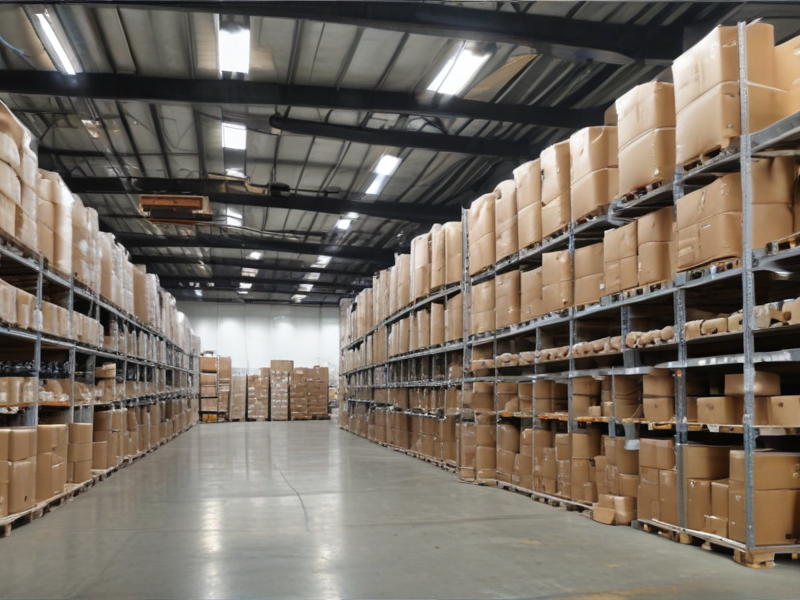
Price Cost Research for turnkey packaging solutions manufacturers Companies in China, use temu.com and 1688.com
When conducting price and cost research for turnkey packaging solutions manufacturers in China, platforms like Temu and 1688 can be quite resourceful. Here’s a brief comparison based on current data from these platforms:
### 1. Initial Research on Temu.com:
Temu is a US-based online marketplace that sources goods primarily from Chinese manufacturers. It provides a convenient and user-friendly platform but may include markups due to its international operation and logistics.
– Product Range: Temu offers a variety of turnkey packaging solutions, including custom boxes, cartons, plastic packaging, and eco-friendly packaging options.
– Price Points: Prices vary significantly based on complexity, materials, and customization needs. General cost ranges for basic solutions can be between $0.50 to $2.00 per unit for standard packaging, increasing with customization and material quality.
– Sample Costs: Obtainable for around $10-$50, subject to the product type and supplier.
### 2. In-depth Research on 1688.com:
1688.com, a part of the Alibaba Group, is a dedicated Chinese B2B platform focused on domestic transactions, hence offering more competitive pricing but requiring navigation of language barriers and larger MOQs (Minimum Order Quantities).
– Product Range: Extensive and comprehensive turnkey packaging solutions, from simple cardboard boxes to sophisticated custom designs, including printing and laminations.
– Price Points: More competitive compared to international platforms, with per-unit costs ranging from ¥0.20 to ¥1.00 (~$0.03 to $0.15) for standard packaging and going up for advanced requirements.
– Sample Costs: Generally lower, often in the range of ¥20 to ¥100 (~$3 to $15), plus shipping, which might be higher due to international logistics.
### Conclusion:
– Temu.com offers ease of access and a streamlined ordering process suitable for small to medium orders but at higher prices.
– 1688.com offers more competitive pricing and better scalability for high-volume orders, yet comes with challenges like language barriers and higher initial negotiation effort.
For efficient cost-saving in high-volume scenarios, 1688.com serves as a better option, while Temu.com can cater well to those needing convenience and lower volume flexibility.
Shipping Cost for turnkey packaging solutions import from China
Shipping costs for turnkey packaging solutions imported from China can vary widely based on several factors, including the type of shipping method (air freight, sea freight, or express shipping), the volume and weight of the goods, and the destination.
1. Shipping Method:
– Air Freight: Fast but more expensive. Suitable for high-value products or urgent deliveries. Costs can range from $4 to $10 per kilogram.
– Sea Freight: Cost-effective for bulk shipments but slower, taking several weeks. Full Container Load (FCL) might cost around $2,000 to $3,000 per 20-foot container, while Less than Container Load (LCL) shipping might cost around $150 to $500 per cubic meter.
– Express Shipping: Fastest but most expensive. Suitable for smaller quantities or urgent needs.
2. Volume and Weight:
– Shipping costs are influenced by either the actual weight (for heavy items) or dimensional weight (for bulky items). Sea freight is usually more economical for larger volumes, while air freight might be considered for lighter, high-value items.
3. Destination and Additional Costs:
– Costs also vary based on the destination country and specific port charges. Import duties, taxes, and customs clearance fees can add to the cost.
– Insurance, packaging, and handling fees also contribute to the total shipping cost.
For example, if importing a 20-foot container of turnkey packaging solutions from Shanghai to Los Angeles, sea freight might cost $2,500, including basic port handling fees. However, additional costs such as customs duties, insurance (approximately 1-2% of the cargo value), and inland transportation (e.g., delivery from port to warehouse) need to be factored in.
In summary, obtaining accurate quotes from multiple freight forwarders or shipping agencies is crucial for budget planning.
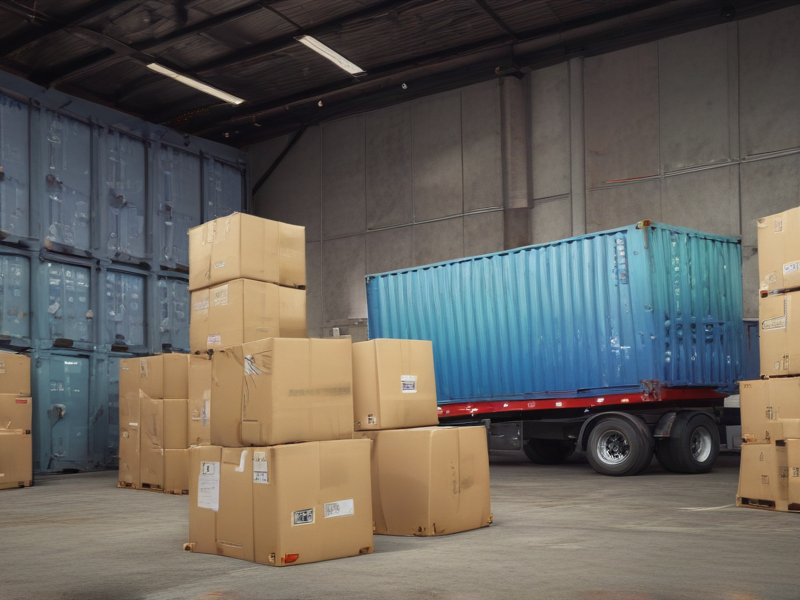
Compare China and Other turnkey packaging solutions Markets: Products Quality and Price,Visible and Hidden Costs
When comparing turnkey packaging solutions from China with those from other global markets, several key factors such as product quality, pricing, and cost structure must be considered.
Product Quality:
Chinese packaging solutions have historically faced scrutiny over quality. However, many Chinese manufacturers have improved standards, often adhering to international certifications like ISO. European and North American markets typically offer higher quality products due to stricter regulations and longer-standing manufacturing standards.
Price:
China often stands out for its lower pricing due to cost advantages in labor, materials, and economies of scale. In contrast, turnkey solutions from the U.S. or Europe tend to be more expensive, reflecting higher labor costs, regulatory compliance, and generally higher quality materials.
Visible and Hidden Costs:
Visible costs like initial purchase prices are often lower with Chinese suppliers. However, hidden costs can include higher shipping and tariffs, longer lead times, and potential customs complexities. Other markets might have higher upfront costs but offer advantages such as faster delivery times, lower shipping costs, and more straightforward regulatory environments. Maintenance and after-sales service costs also tend to be higher when offshoring to China due to geographical distance and potential language barriers.
In summary, while Chinese turnkey packaging solutions offer a cost-effective option, they may come with quality trade-offs and various hidden costs. Other markets, particularly in the West, provide higher quality and more predictable total costs, though generally at a higher initial price point.
Custom Private Labeling and Branding Opportunities with Chinese turnkey packaging solutions Manufacturers
Custom private labeling and branding with Chinese turnkey packaging solution manufacturers present an extraordinary opportunity for businesses looking to elevate their product offerings and streamline operations. These manufacturers provide end-to-end services—from design and production to quality control and logistics. Here’s how they can benefit your business:
Comprehensive Services: Chinese turnkey packaging solutions manufacturers offer a wide range of services including custom package design, material sourcing, printing, and assembly. This holistic approach ensures that your branding and packaging meet your exact specifications, reducing the need for multiple vendors and simplifying the supply chain.
Cost Efficiency: Leveraging China’s established manufacturing infrastructure and competitive labor costs can result in significant savings. These savings can be redirected into other areas of your business such as marketing and research and development.
Quality and Innovation: Chinese manufacturers have advanced considerably in terms of technology and quality standards. Many offer cutting-edge printing techniques, eco-friendly materials, and innovative packaging solutions that can enhance the appeal and sustainability of your products.
Flexibility and Scale: Whether you’re a startup needing smaller batches or an established brand requiring large-scale production, Chinese manufacturers provide the flexibility to scale according to your needs. They can accommodate rapid adjustments in production volume, which is essential for meeting market demands and capitalizing on trends.
Global Reach: With experience in global markets, many Chinese turnkey solution providers are well-versed in international regulations and standards. This expertise ensures that your products are compliant, and can be exported smoothly, enhancing your brand’s reputation and credibility.
Customization: From bespoke packaging designs to custom labeling, these manufacturers offer immense customization opportunities, allowing you to create a unique brand identity that resonates with your target audience.
Partnering with Chinese turnkey packaging solution providers can thus streamline your operations, enhance your brand identity, and provide the flexibility needed to stay competitive in a global market.
Tips for Procurement and Considerations when Purchasing turnkey packaging solutions
When procuring turnkey packaging solutions, a comprehensive approach is essential to ensure efficiency, quality, and cost-effectiveness. Here are key tips and considerations:
1. Define Requirements Clearly:
– Volume: Specify the production volume to match capability.
– Quality Standards: Ensure compliance with industry and regulatory standards.
2. Vendor Selection:
– Reputation: Choose vendors with proven track records and good industry reputation.
– Customization: Ensure they can tailor solutions to your specific needs.
– Support: Look for vendors offering robust after-sales support and maintenance.
3. Cost Transparency:
– Breakdown: Obtain detailed cost breakdowns to understand components like materials, labor, and delivery.
– Total Cost of Ownership (TCO): Consider long-term costs including maintenance, training, and potential upgrades.
4. Technology and Innovation:
– Automation: Evaluate the degree of automation available to improve efficiency.
– Integration: Ensure compatibility with existing systems, including ERP and SCM software.
5. Sustainability:
– Materials: Opt for eco-friendly materials and packaging designs.
– Processes: Verify the vendor’s sustainability practices in their manufacturing process.
6. Legal and Compliance:
– Ensure adherence to legal requirements and certifications for your industry and country.
– Evaluate the vendor’s understanding of regulations pertaining to packaging, labeling, and environmental impact.
7. Delivery and Lead Time:
– Ensure the vendor’s delivery schedule aligns with your production timeline to avoid disruptions.
8. Scalability:
– Choose solutions that can scale according to your business growth without significant additional investments.
9. Quality Assurance:
– Verify that the vendor has stringent quality control measures in place to ensure consistency.
10. Training and Documentation:
– Comprehensive training for your team and detailed documentation should be provided to facilitate smooth operation.
Meticulous attention to these factors can lead to successful procurement and implementation of turnkey packaging solutions that are reliable, cost-effective, and aligned with your operational goals.
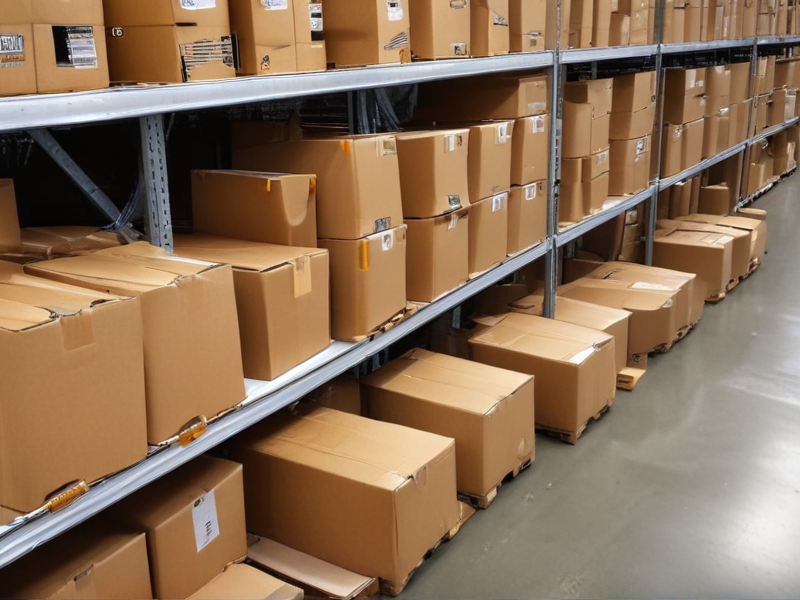
FAQs on Sourcing and Manufacturing turnkey packaging solutions in China
FAQs on Sourcing and Manufacturing Turnkey Packaging Solutions in China
1. What are turnkey packaging solutions?
Turnkey packaging solutions encompass the complete process from design to manufacturing, assembly, and delivery of packaging products, often provided by a single supplier.
2. Why source packaging solutions from China?
China offers cost-effective manufacturing, a variety of materials, advanced technology, and experienced suppliers, making it a popular choice for turnkey packaging solutions.
3. How do I find a reliable supplier in China?
Use online platforms like Alibaba, Global Sources, attend trade shows, and consult sourcing agents. Verifying credentials, checking reviews, and requesting samples are essential steps.
4. What materials are available for packaging in China?
Suppliers offer a wide range of materials, including cardboard, plastic, glass, metal, and eco-friendly options like biodegradable plastics and recycled paper.
5. How do I ensure the quality of packaging products?
Establish clear specifications, request samples, and conduct third-party inspections. Quality control measures and certifications like ISO are also critical.
6. What are the common lead times for packaging solutions?
Lead times vary based on complexity and order size, but typically range from 4-8 weeks for initial orders and 2-4 weeks for repeat orders.
7. Can suppliers handle custom designs and branding?
Many Chinese suppliers offer custom design and branding services, including logo printing, unique shapes, and specialized finishes.
8. What are the common payment terms?
Typical payment terms include a 30% deposit upfront and 70% before shipment. Letter of Credit (L/C) and Trade Assurance are also used for added security.
9. How is shipping and logistics managed?
Suppliers often handle shipping logistics. They can arrange sea, air, or express shipping based on your needs. It’s important to clarify Incoterms (FOB, CIF, etc.) beforehand.
10. Are there any specific regulations or certifications required?
Ensure compliance with international packaging standards and certifications such as FDA, CE, and RoHS, depending on the destination market.
By addressing these common questions, you can effectively navigate the complexities of sourcing and manufacturing turnkey packaging solutions in China.
